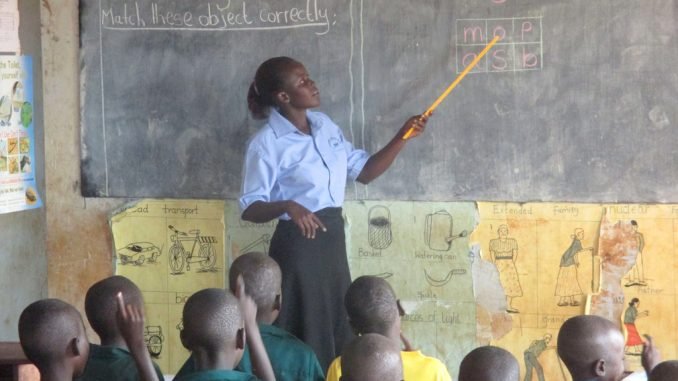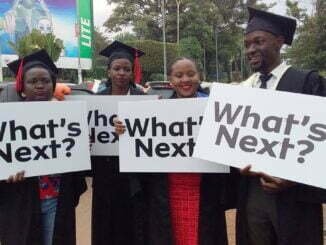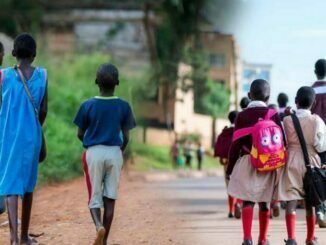
Kampala, Uganda | URN | Secondary and primary schools in different parts of the country are luring teachers to classes with the promise of increasing the Parents, Teachers Allowances (PTA) following the strike.
At many of the secondary schools that this publication visited, learning was taking place despite calls by the Uganda National Teachers Union (UNATU) to all teachers to lay down their tools.
The teachers strike started on Wednesday 15, June 2022 due to the government’s decision to increase the pay of science teachers to 4 million shillings while many of the Arts teachers earn less than one million shillings.
Some of the head teachers that our reporters spoke to said that they had resolved to use PTA funds to enable learning to continue after learners spent two years at home during the COVID-19 lockdown.
Catherine Onen, the head teacher of Kitante Hill School says they had to convince the teachers to attend to the learners. “Things are not good. While we have managed to talk to our teachers to stay and continue teaching, the morale is down because they want to take part in the strike,” she noted.
In many other schools visited in Kampala city, like Makerere College School and St Peter Nsambya, teachers were seen conducting lessons.
In Mbarara, the majority of the secondary schools continue to offer both arts and science subjects in a practically typical manner. However, our reporter has observed that at two schools including Ntale SSS and St Paul’s, there is no learning taking place as both science and art teachers are not teaching.
It has been noted that schools that have normal programs have either decided to give more allowance to the Arts teachers or deployed private teachers to fill the gap. Information obtained indicates that teachers have been promised an allowance ranging from 150,000 to 300,000 shillings.
Geoffrey Birungi, the head teacher of Mbarara SS, notes that art teachers have refused to turn up. He says that the school has a sizable number of private teachers on PTA arrangements who are currently stepping in to fill the gap.
Birungi however notes that this might not be sustainable given the fact that there are some subjects where the school lacks an extra teacher.
At Lango College, Sammy Bob Okino, the head teacher says that the school board has decided to hire private teachers who will be compensated using PTA fees.
At Gulu Secondary school, the situation was normal as classes were ongoing.
Irene Mwaka, the Head teacher says they have encouraged arts teachers on the government payroll to continue teaching in order to cover the syllabus.
“We have encouraged the teachers to continue teaching while they wait for assurance from the government and UNATU team leaders. We understand that the government and UNATU members are set to meet on this matter,” she said.
In the Greater Masaka sub-region, the teachers have been paid allowances.
However, Mathew Male, the Head Teacher of Mitete Primary School in Mateete sub-county, who also serves as the Chairperson of the UNATU branch in Sembabule district, claims that they have launched a counter-campaign to persuade teachers not to be blinded by meager PTA allowances.
Speaking after the reading of the National Budget, President Museveni expressed his displeasure with head teachers that charge students fees that are used to pay allowances. Such fees include PTA and remedial fees.
Some parents that our reporters spoke to, said that the government should not interfere with the PTA funds.
Alex Mukisa, a parent in Kampala says that the fees are enabling learning to continue.
Read Also: Prime Minister Nabbanja pleads with Ugandan doctors to call off strike
“It is beyond everyone’s comprehension that one instructor would receive 4 million shillings while the other would receive just approximately 500,000!” However, we all know those science teachers are unable to teach all disciplines,” Mukisa said.
Wilson Munowa, a parent from Butaleja, also said that the failure of teachers to attend to their learners is disappointing. He notes that the government should sit with the teachers to resolve the impasse.
While many secondary schools are finding alternatives, primary schools which are the majority, have not been that lucky. At many of the schools that our reporters visited, head teachers appeared confused about how the matter can be handled.
Juliet Nabirye, the head teacher of Makerere University Primary School said that she has to keep the school open and ensure that the learners are controlled since there were no teachers to attend to them.



